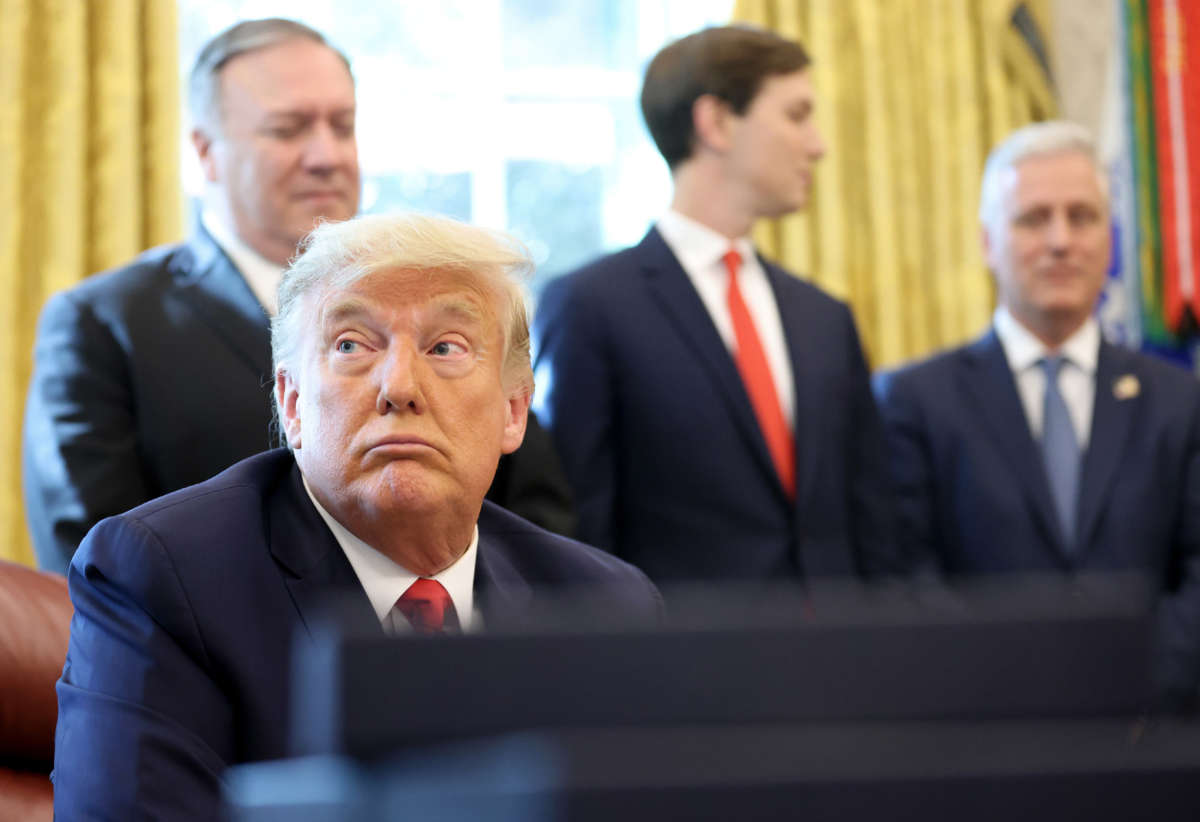The House select committee investigating the January 6 attack on the U.S. Capitol building has discovered significant gaps in the White House’s telephone logs during the hours that the attack was unfolding.
Records sent to the January 6 commission from the National Archives show almost no phone calls to or from Trump during the time that the Capitol breach took place, according to sources who spoke to The New York Times. This omission is significant because the select committee knows, without a doubt, that Trump was making phone calls during this time.
Trump was in direct contact with congressional lawmakers on January 6, 2021, urging them to vote against the certification of the 2020 presidential election. The former president also had a heated conversation with House Minority Leader Kevin McCarthy (R-California), who expressed frustration that Trump wasn’t doing anything about the mob of his loyalists violently descending upon the U.S. Capitol building .
There is no evidence that the phone records were tampered with or deleted. However, it has been well-documented that Trump often used a personal cell phone device or the cell phones of his subordinates, neither of which would have been recorded by the White House call logs.
The omission is especially glaring in light of new reports that Trump repeatedly destroyed paper documents from his time in office. After his departure from the presidency, Trump violated the Presidential Records Act by transporting boxes that could contain classified information to his Mar-a-Lago estate in Palm Beach, Florida.
Although the omission in the phone records will make the committee’s work more difficult, members of the January 6 commission have said that they believe they will come by the information through other means in the near future. The select committee has subpoenaed the phone records of many individuals in Trump’s inner circle, including the records of his son, Eric Trump, and of Kimberly Guilfoyle, the fiancée of Trump’s other son, Donald Trump Jr.
“Whether it is the absence of data or phone logs or willing testimony, inevitably, we have different sources to get that information because these are conversations that require more than one participant,” said Rep. Stephanie Murphy (D-Florida), a member of the commission. “So even if there is one node that isn’t forthcoming, there are inevitably other points of information that we can use to build a more fulsome picture of what happened on January 6.”
There’s also the possibility that the committee could subpoena the phone records of Trump’s personal cell phone. Although the panel hasn’t yet taken moves to do so, committee chair Rep. Bennie Thompson (D-Mississippi) has said that the option is still on the table.
Press freedom is under attack
As Trump cracks down on political speech, independent media is increasingly necessary.
Truthout produces reporting you won’t see in the mainstream: journalism from the frontlines of global conflict, interviews with grassroots movement leaders, high-quality legal analysis and more.
Our work is possible thanks to reader support. Help Truthout catalyze change and social justice — make a tax-deductible monthly or one-time donation today.
